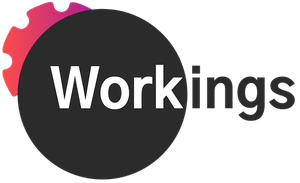- Competitive pay
- Correct classification under IRS regulations and the Fair Labor Standards Act
- Hours/workload as contracted
- Access to a decent health plan (for full-timers) and paid time off
- A safe, inclusive culture that nurtures professional belonging
- Opportunities for professional growth
Given our business model as a professional services company in today’s market, jobs at Steyer can be long- or short-term (but are, given the unpredictability of client budgets these days, mostly short-term), and full-time or part-time. Nearly 100% of our jobs are remote. We estimate that up to $4 million in Steyer revenue that used to come from higher-paying, long-term, full-time contracting work will, by the time we hit mid-2025, have been lost to clients shifting their spend offshore or to AI. We are replacing that revenue with what the market is telling us it wants to buy: content services via project work, which is generally short-term.
Can short-term work still be considered a good job? We do think it’s possible, and we’re doing everything we can to make it so at Steyer—but it’s nowhere near a given. In stark difference to 15 or 20 years ago, McKinsey estimates that 36% of all U.S. workers are now primarily employed through the gig economy (not all of whom are gig workers by choice), and only 32% of those gig workers have access to employer-subsidized health insurance. According to the National Employment Law Project, anywhere from 10-30% of U.S. employers misclassify employees as independent contractors, cutting them off from important labor protections and benefits. And with client budgets flat or decreasing, inflation affecting everyday costs of living, and insurance costs only rising, there’s no question that it’s a painful time for so many workers.
We operate, of course, within the constraints of the market—and as a business we won’t be able to provide any jobs if our operations are not financially sustainable. But Tony and I are crunching the numbers as smartly as we can, considering the very human impacts of every business decision we make, and making the calls we think will best serve our mission of good jobs, even in this tough environment.
Do you have any advice for us? Do you agree that a short-term job could, under the right circumstances, be considered a good job?
Thanks,
Katelyn
Photo by Debby Hudson on Unsplash



